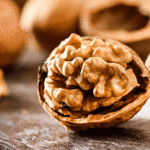By Susan Scutti, CNN
Updated 7:24 PM ET, Wed May 22, 2019
Resveratrol, a compound produced in the skin of grapes to defend against insects and bacteria, is present in red wine. Mice that were fed large quantities of this compound experienced a beneficial drop in blood pressure, according to a study published Thursday in the journal Circulation. Resveratrol may someday be used to develop a new class of high blood pressure drugs for humans, believe the researchers, who explored the mechanics of how it works. However, because they did not experiment on human patients, it has not been proven that these “animal findings can be translated to humans,” wrote the study authors, from King’s College London.
This is not your cue to start drinking copious amounts of red wine, they added.Globally, about 40% of adults 25 and older have high blood pressure, while in the United States the same is true of 1 in 3 adults, according to the US Centers for Disease Control and Prevention. High blood pressure — when the force of blood pulsing against artery walls is strong enough to cause health concerns — is called the “silent killer” because, with no warning, it can lead to a heart attack or stroke.
The research team began their experiments by inducing high blood pressure in mice. Then, some of the rodents were fed a diet high in resveratrol for 15 days. Compared with mice eating a normal diet, the blood pressure of those that consumed high quantities of resveratrol dropped a significant amount.How did this happen? Resveratrol caused the blood vessels to relax, leading to a decrease in blood pressure, because a protein called PKG1a in the vessel walls had been oxidized, the researchers explained. Resveratrol acts in the same way in smooth muscle cells from human blood vessels, they found.
No current blood pressure-lowering medications target this physiological pathway, the researchers said, adding that resveratrol, previously labeled an “antioxidant,” is actually an oxidant: an atom that “takes” one or more electrons from another party in a chemical reaction. Oxidants lead to cell damage while antioxidants, which include natural and manmade substances such as vitamin C, can prevent or delay harm done to cells because they supply, rather than steal, electrons. The study also suggests that resveratrol’s blood pressure-lowering abilities might be accentuated in those who need it most: heart disease patients. The beneficial compound needs to be activated to oxidize the protein, and those activating compounds are found at higher concentrations in heart patients, the researchers explained.
Red wine is not the answer
Bob Patton, a lecturer and alcohol researcher at the University of Surrey, pointed out that if you wanted to match the effective dosage found in the study, you would need to drink about 1,000 bottles of wine each day, “which is of course impossible.”Such a high dose was needed because resveratrol must be broken down to reach its target in the blood vessel wall, and it does not dissolve well, the study authors explained. Future drugs may require either altered, easy-to-dissolve resveratrol or synthetic compounds that mimic its beneficial effects.
Patton, who was not involved in the study, told Science Media Centre that “Excessive alcohol consumption is associated with increases in blood pressure, and this can lead to cardiovascular problems like heart attacks and strokes.”It’s a good idea to reduce not increase your wine intake, he added: “Relaxing with a glass of red [wine] is one way to unwind at the end of the day, but on its own that is not going to help tackle hypertension; losing weight, taking regular exercise and lowering your stress levels are three of the best ways to do this.”Roger Corder, emeritus professor of experimental therapeutics at Queen Mary University of London, told Science Media Centre that the study’s mouse experiment showed blood pressure effects that “are quite small. So I am astounded this paper made it through the referee process at Circulation.”







